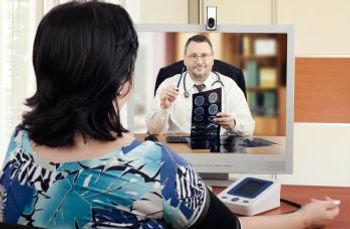
New ways to get paid for interacting with patients

New ways to get paid for interacting with patients

Five reasons why doctors need to offer telemedicine in their practice.

Four changes that can improve the value of quality metrics.

The Medicare Quality Payment Program, enacted under the Medicare Access and CHIP Reauthorization Act of 2015 (MACRA), will affect participating physicians’ payment in 2021.

When it comes to cybersecurity, 2018 was a banner year for the healthcare industry for a myriad of reasons, both good and bad.

Experts are hopeful that AI will be a key part of reducing physicians' burdens and saving them time and energy.

Technology can improve patient satisfaction, speed of treatment, and accuracy, which can positively impact patient outcomes.

An overwhelming number of new medical technologies promises to improve diagnostics and increase efficiencies in healthcare-and we’ll start to see these improvements soon.

ONC officials share their views on what the future of medicine should look like.

Strategies to make sure your practice does not fall victim.

How this technology will change the way physicians practice.

Who will solve interoperability, and when?

If it's not relevant, easy-and yes-delightful, the opportunity to engage with the patient is lost.

Hackers are increasingly using targeted attacks that resemble legitimate electronic communications.

Next generation medical wearables are facilitating the shift to a value-based care system, moving the point of care to the patient’s home while allowing doctors to monitor the patient’s condition through continuous, real-time data.

This year could prove to be a challenging year for physicians who aren’t attuned to the latest industry trends in reimbursement.

While newsmaking cyberattacks often involve external hacks, many breaches result from mistakes made within the practice.

The healthcare industry doesn’t stay still and neither do the health systems within it as they strive to make meaningful progress for their patients and providers. With that, we see several key interconnected trends making an impact in 2019.

It’s crucial for providers to think of patients as customers and engage with them via the same channels that other businesses use to nurture those valuable relationships.

Telemedicine holds promise, but it is just another tool in a clinician’s care delivery toolbox.

As physicians, we have given up control and lost the ability to do the job we were trained to do. Our focus has turned instead to serving needs that have become more demanding than those of our patients.

Artificial intelligence can create tangible benefits when it helps facilitate better, more frequent support beyond the four walls of care delivery.

Every year, Medical Economics asks physicians to rate the EHR system they use in their practice on a number of factors ranging from usability to customer service.

What does the shrinking market mean for physicians?

Just as small holes in a ship can eventually lead to a catastrophic sinking, small holes in your communication can sink your practice as well.